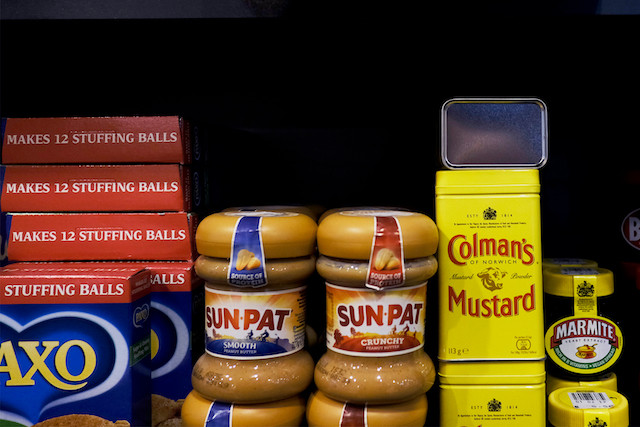Strassen-based grocery store Home from Home sources 90% of its stock from the UK. By mid-February its freezers and shelves were beginning to look empty.
According to the expat grocery store’s manager, Calum Heffernan, it had not received a delivery since December 2020 because the paperwork still had to be sorted out.
“It’s easier to get stuff from the US than from England. We’re waiting for three pallets off of a truck being coordinated by another shop in Belgium,” Heffernan said, adding: “At the moment it requires over 300 pages of paperwork for one lorry.”
The delays struck at the shop’s busiest time of the year, before Christmas, when it was awaiting a delivery of 170 turkeys for expat customers in Luxembourg. “They got blocked at the border,” said Heffernan.
The shop has found a work-around for imported fresh minced meat like sausages and some long-life produce, having found suppliers in the Republic of Ireland. “That’s coming through because the ferries are going around England to Cherbourg, France.”
For some fresh meat products, the price has even fallen. But Heffernan said this cost saving might yet be absorbed by surprise expenses in future orders from the UK.
Supermarket chains
Larger supermarket chains in Luxembourg appeared to be less impacted. Cactus said that there had been some delays early on but that Brexit had had no further repercussions on business. A spokesman for Delhaize in Luxembourg and Belgium commented by email that “for the moment, there is no impact on our activities.”
Neither supermarket indicated the amount of goods it sources from or through the UK, whether it had discontinued any items or raised prices because of Brexit.
Post-Brexit customs issues are not only limited to food. The Ernster bookstore chain said it buys books from the UK only when it cannot source from its German and Belgians suppliers. Since 1 January 2021, customs fees have been added.
Cost increases being monitored
“The invoicing of books and service is no longer calculated on prices without British VAT but on the gross value including British VAT,” said Ernster’s Marc Janeczek. “Furthermore, the deliveries have to be treated by Luxembourgish customs which will lead to a longer delivery delay.” This means at least a further week’s delay for books that would normally take two to six weeks to arrive.
The store is monitoring the increased costs and warns it will have to pass these on to consumers in future “to guarantee that the sale of English books can be continued on a sane economical basis. But we try to keep the prices as low as economically possible,” said Janeczek.
In a survey conducted by the British Chambers of Commerce between 18 and 31 January 2021, half of exporters and manufacturers indicated facing difficulties in adapting to the new rules under the EU-UK trade deal.
The UK was Luxembourg’s sixth biggest trading partner in 2019, the latest data available by national statistics office Statec, with exports worth €536.6m and imports worth €417.1m exchanged.
For services, the UK ranked second, behind Germany, at €17.6bn in exports and €12.5bn in imports, largely because of the financial service centres in London and Luxembourg City.
